
3 October University: ‘Artificial intelligence is like young people and sex’
‘Everyone’s talking about it, everyone thinks everyone else is doing it, but the reality is disappointing,’ says biochemist Gerard van Westen in his 3 October University lecture in the Van der Werfpark. In the full marquee, he gets a laugh with this suggestion that artificial intelligence is comparable to young people and sex.
Van Westen uses algorithms to speed up the search process for new drugs. He does this with his colleagues at the Leiden Academic Centre for Drug Research. With his whole family and grandma watching from the front row, Van Westen talks about that search process. Developing a new drug is usually a long and costly process, which has only produced 2,000 (!) working drugs so far. The question is: which combinations of atoms – molecules – might lead to a successful drug that can act in the body to tackle a disease? Now that search process mostly takes place experimentally in a lab, with only one in 10,000 potential combinations leading to a working result. By using an algorithm, a cleverly written computer programme, to sift through a lot of medical data, Van Westen thinks it may be possible to make this one or two out of ten instead.

Rather be a writer
Max, Van Westen’s 12-year-old son is sitting among his relatives. What did his father say that he didn’t know already? ‘That coffee can give you a stomachache,’ he says. Wow, because it wasn’t a simple lecture. Van Westen gave coffee as an example of a substance that acts on the body and thus fits the definition of a drug. It wakes you up but can also give you a stomachache. Max surely wants to follow in his father’s footsteps because medicine development is such a great field. Apparently not: he’d rather be a writer.
Intuition or rationality?
In his lecture, philosopher Wouter Kalf wonders whether philosophers reach the decision about whether to lie in a different way from people who, like himself, sit around reading philosophers all day. Philosophers like Immanuel Kant, for example, who thought long and hard about lying (and thought you should never do it). Kalf observes that at some point not telling the truth is often intuitive, also with philosophers – without first dwelling on Kant et al. Only afterwards, will the philosopher reflect a bit sooner and a bit longer on why they actually lied. That reflection may lead to the conclusion that not telling the truth was a bad idea after all.
An important fact, says Kalf, is that we are always related somehow to the person we are lying to. And that the situation, the context, always plays a big role. We don’t want to hurt someone, or we have a stake in the relationship ourselves. Reflection is not exclusive to philosophers; non-philosophers do it too. Kalf therefore concludes that to lie or not to lie is essentially a question of balance between intuition and rationality.

A fake pill that works
Psychologist Kaya Peerdeman talks about the phenomenon of the (working) placebo, a pill with no medical effect. There is a lot of data on placebos because a serious study to test the effect of a medicine in humans always includes a control group that is given not the medicine but a fake pill instead. However, that pill turns out not to be that fake after all. Placebos actually work for complaints such as pain, depression, nausea and an immune or hormonal imbalance. People find it an intriguing topic. This is clear from the many questions from the audience afterwards. And do they only work in gullible people, and for subjective complaints, such as pain? No, they also work when people know they are getting a placebo.
Wet flannel as ultimate placebo
Lidwien Post works in psychiatric care, with complex clients who are given complex medication, often with various side effects. She rushes over to Peerdeman after the lecture to ask a few more questions. Later, she explains that she is convinced that a placebo could also work for her clients. ‘I’m still training as a psychiatric nurse,’ she says, ‘but I definitely want to discuss this with doctors. We have a lot of very agitated patients. A placebo might do something to help.’ Her partner Nikolai van Tol uses a placebo in his daily work in after-school care. ‘Nothing works better with children who have fallen over or otherwise hurt themselves than a wet flannel,’ he says. ‘Even if they have been visibly hurt.’
The 3 October University is a moment of pause and reflection amid the noisy and hectic celebration of Leiden’s resistance and liberation. A young tradition to be honoured.
-
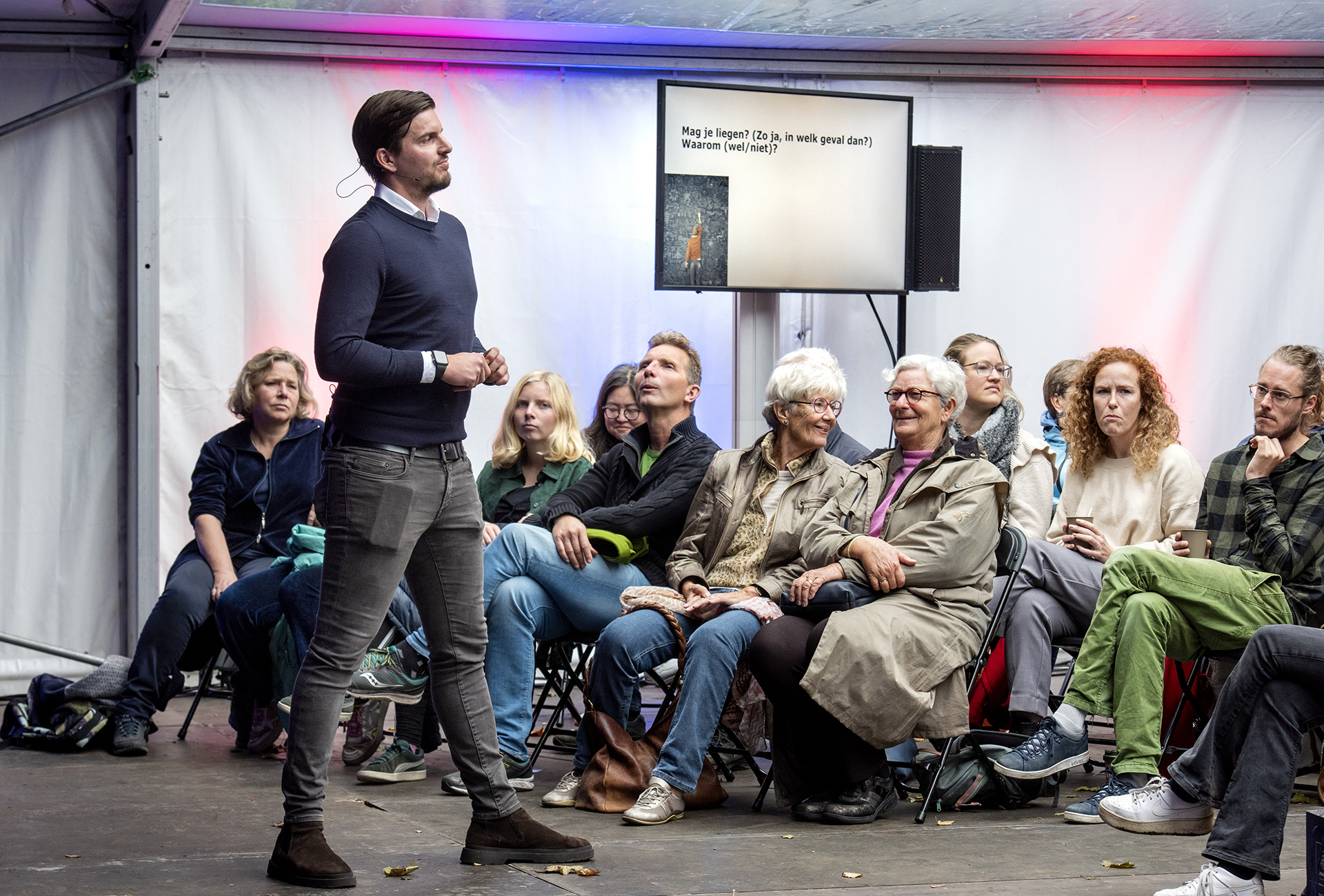
Philosopher Wouter Kalf. -
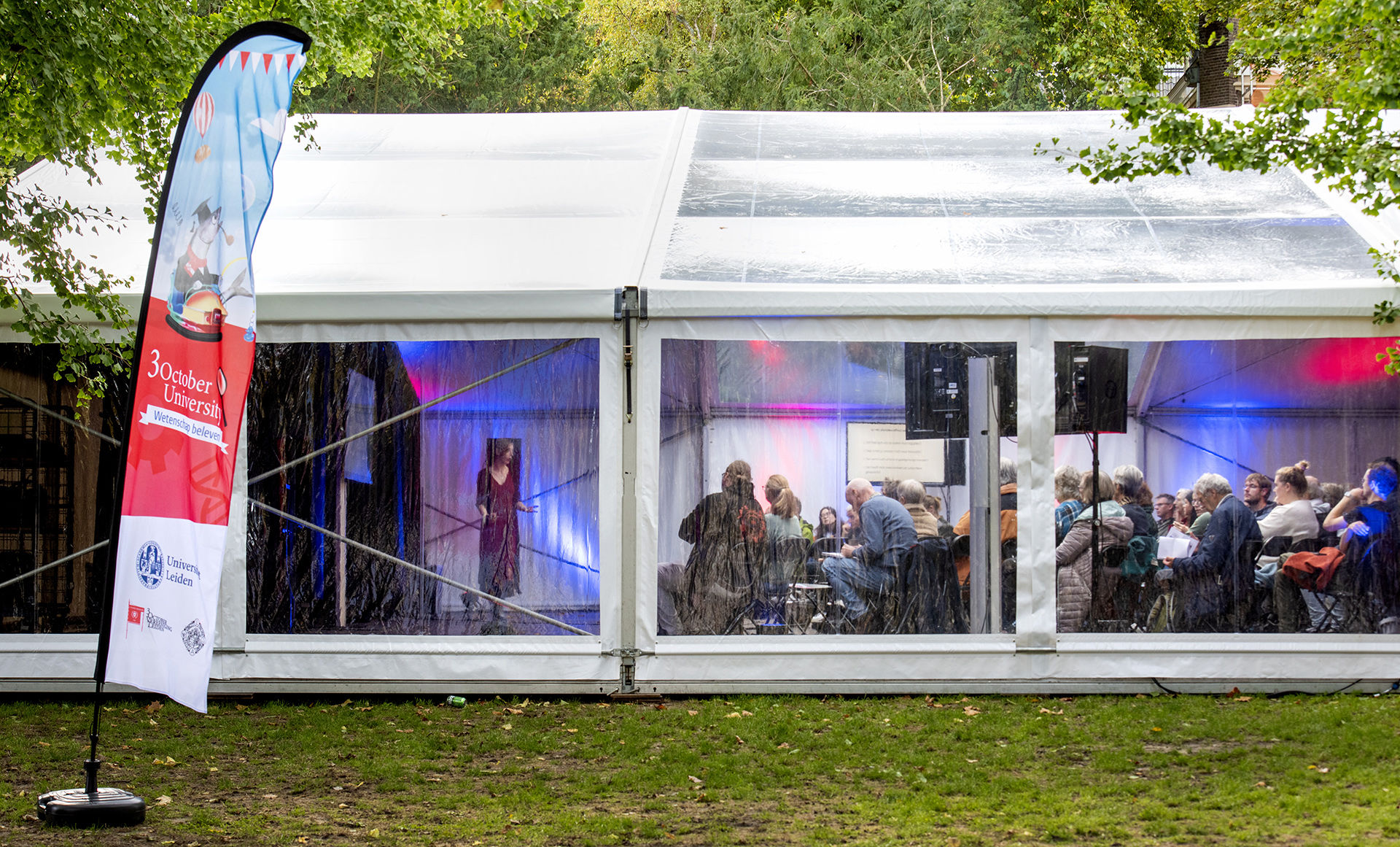
The 3 October University marqee. -
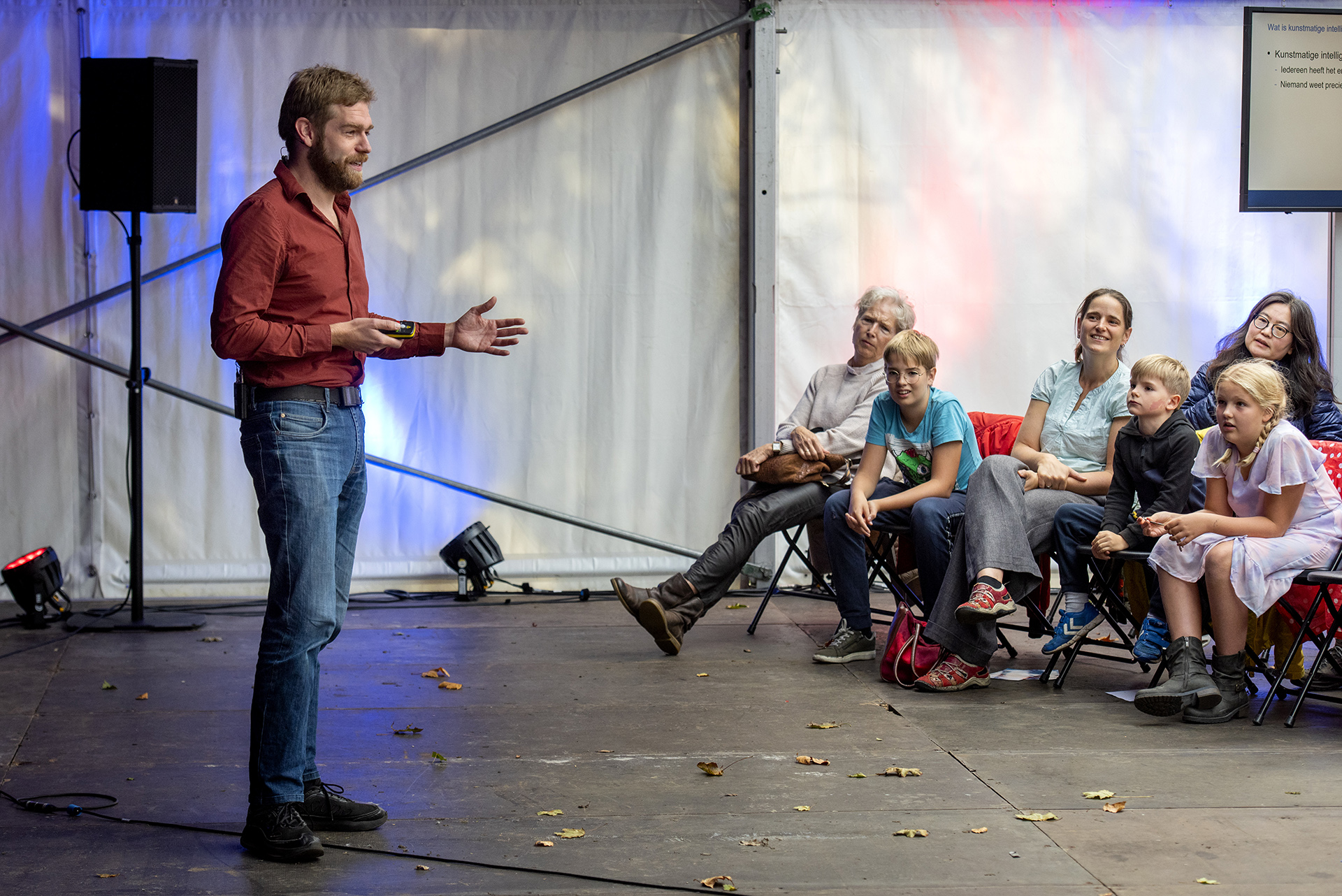
Biochemist Gerard van Westen with his family in the front row. -
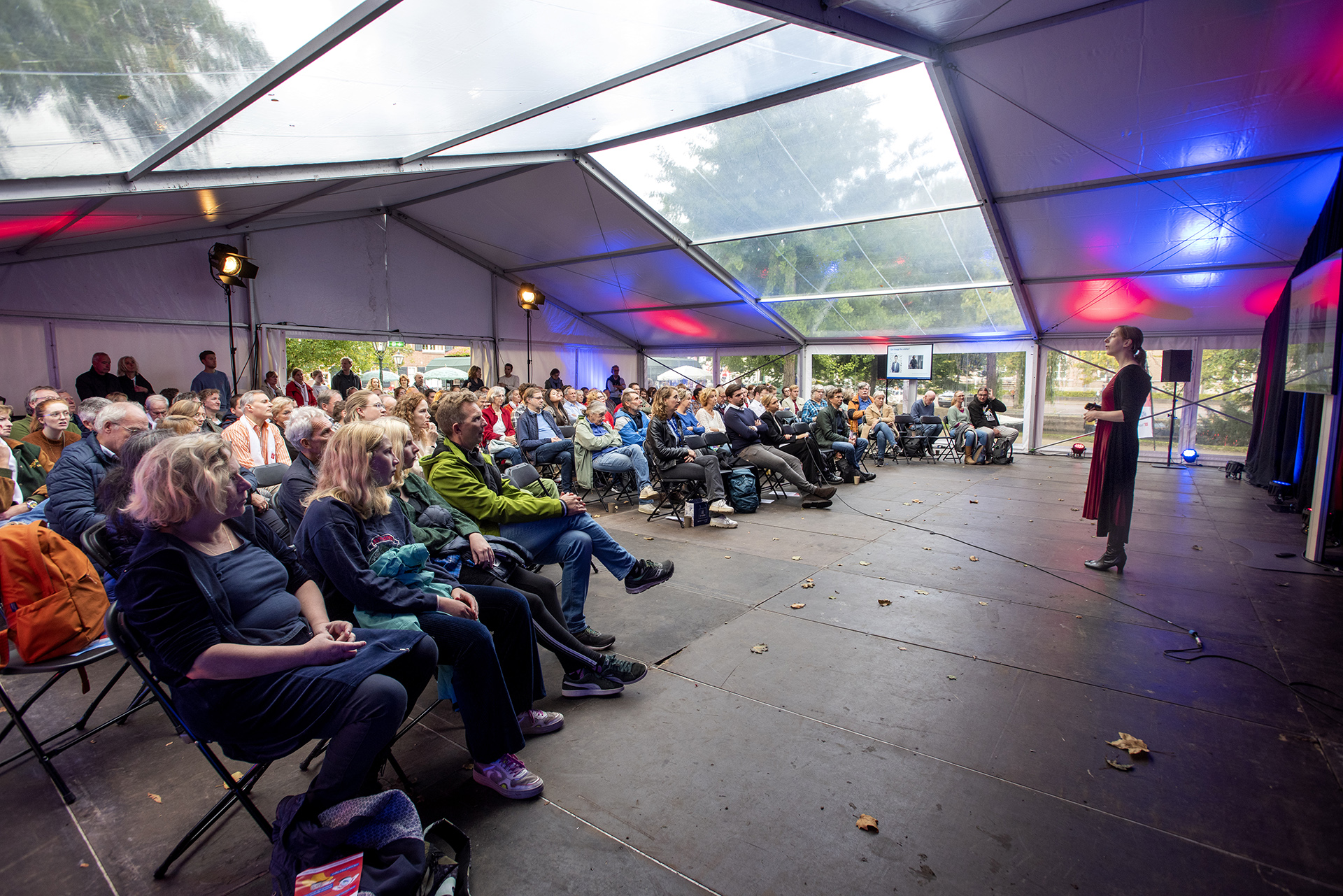
Psychologist Kaya Peerdeman and the audience. -
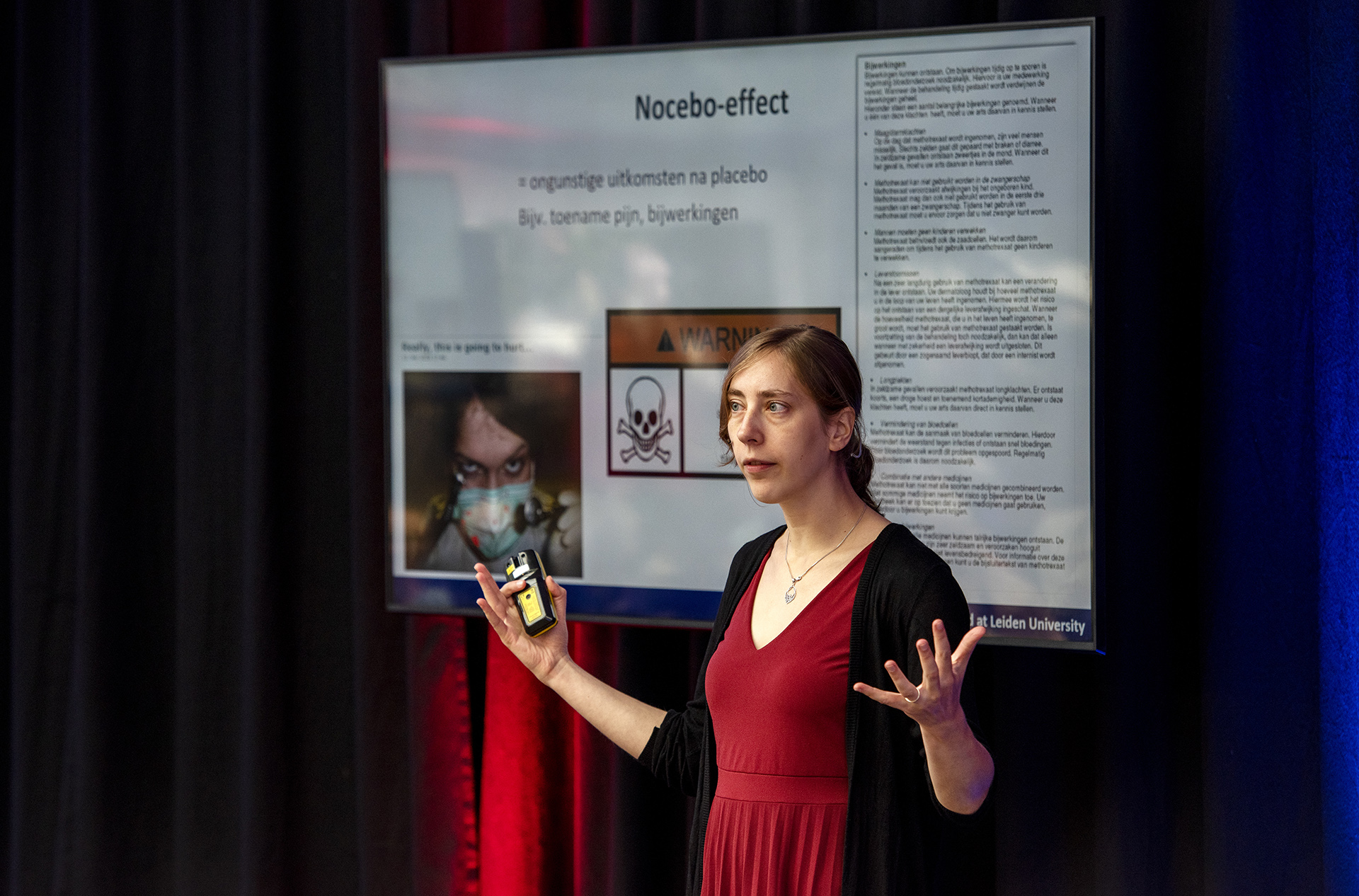
Psychologist Kaya Peerdeman.
Text: Corine Hendriks
Photos: Marc de Haan
